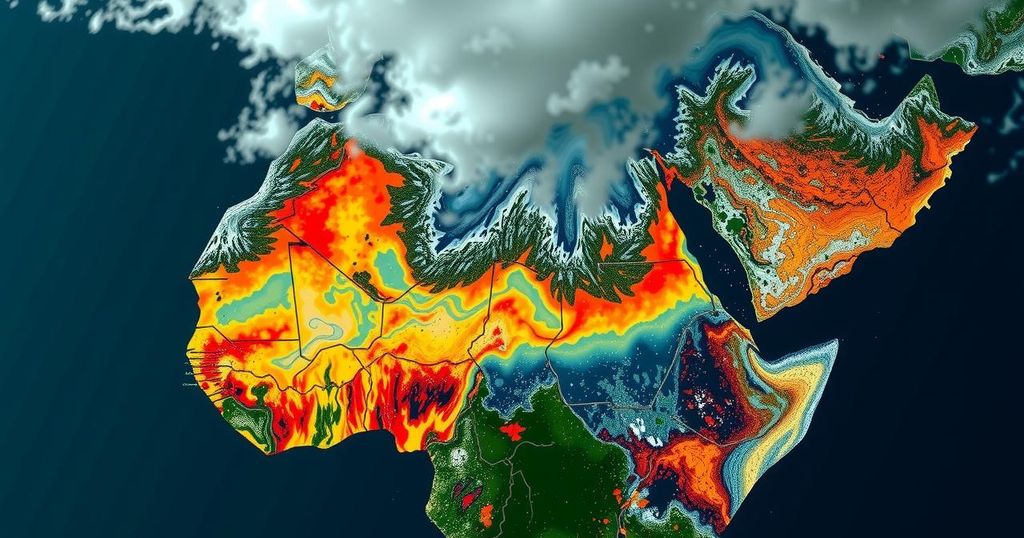A recent study established that human-caused climate change intensified severe rains that triggered catastrophic flooding in parts of Africa, leading to significant loss of life and displacement. The research indicates rainfall in affected regions could become significantly more intense, advocating for urgent infrastructural investments and financial support during upcoming climate discussions.
Recent research by a group of international scientists has revealed that human-induced climate change significantly exacerbated the severe rains that led to catastrophic flooding in several African nations, including Cameroon, Chad, Niger, Nigeria, and Sudan. According to the findings reported by World Weather Attribution (WWA), the seasonal downpours experienced this year were approximately 5-20% more intense due to global warming. This increase in rainfall intensity raises alarming projections about future weather patterns, with WWA indicating that such heavy rainfall could become a regular occurrence if warming trends persist. Izidine Pinto, a researcher at the Royal Netherlands Meteorological Institute, stated, “Spells of heavy summer rainfall have become the new normal in Sudan, Nigeria, Niger, Cameroon and Chad.” The recent floods have resulted in approximately 1,500 fatalities and displaced over one million individuals, as reported by the U.N. Office for the Coordination of Humanitarian Affairs (OCHA). The situation has been exacerbated by the fact that local dams in Nigeria and Sudan were overwhelmed by the excessive rainfall. Furthermore, if global temperatures rise by 2 degrees Celsius (3.6 degrees Fahrenheit), noteworthy rainfall events such as these could become an annual problem by the mid-2050s. In response to these challenges, WWA advocates for increased investment in early warning systems and improvements to existing dam infrastructures. Joyce Kimutai, a researcher at the Centre for Environmental Policy at Imperial College in London, emphasized the disparity between emissions and the impacts of climate change in Africa, stating, “Africa has contributed a tiny amount of carbon emissions globally, but is being hit the hardest by extreme weather.” She called for substantial financial contributions from wealthier nations at this year’s forthcoming COP29 climate discussions, which are set to take place in November.
The relationship between climate change and extreme weather events, particularly in vulnerable regions like Africa, has gained increasing attention in recent years. The phenomenon of global warming, primarily caused by human activities such as fossil fuel burning, leads to higher temperatures, which subsequently intensify weather patterns. In regions like West and Central Africa, where communities are already coping with significant climatic stresses, the increased frequency and intensity of rainfall can have devastating impacts, particularly for populations dependent on agriculture and local water resources. The U.N. aid agency emphasizes the dire consequences of these extreme weather events, which include loss of life, displacement of populations, and severe economic challenges.
In conclusion, the findings from World Weather Attribution underline the urgent need to address the impacts of climate change, particularly as they pertain to extreme weather events in Africa. The report highlights that human activities are intensifying natural weather patterns, resulting in disastrous outcomes for many communities. With increased rainfall becoming the norm, strategic investments in infrastructure and early warning systems are critical. Furthermore, there is a clear demand for global financial support to assist those nations most affected by these crises, particularly during the upcoming COP29 climate negotiations.
Original Source: www.usnews.com







